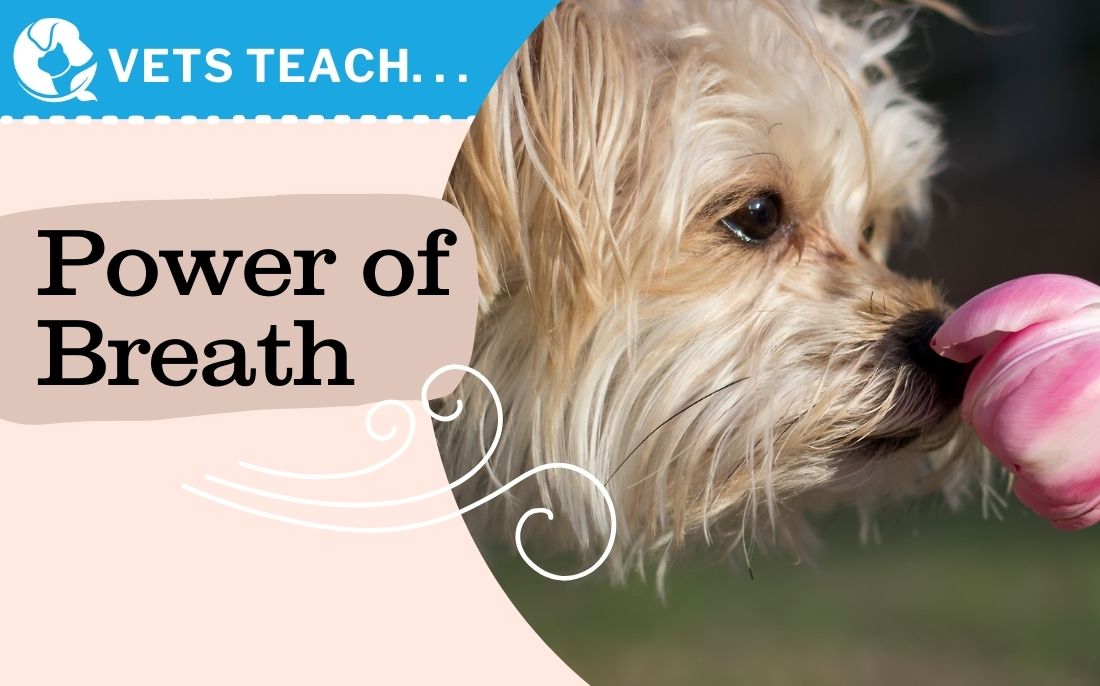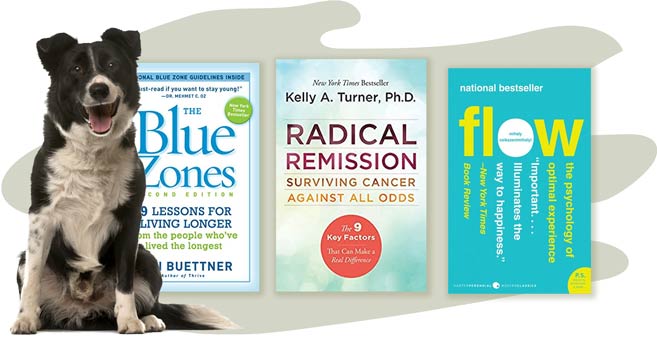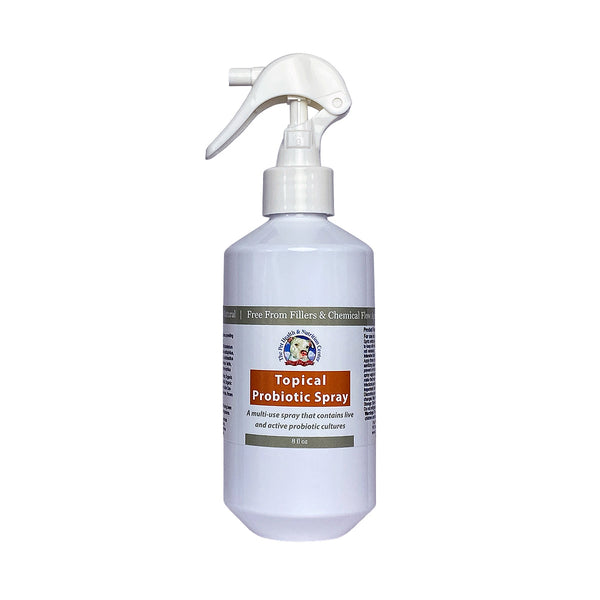- Joined
- Apr 14, 2023
- Messages
- 9
I couldn't figure out how to tag Dr. Christina and Dr. Sara, as the video tutorial suggested. Any comments welcome from vets and members. Thank you! 
1. Your pet's name 2. Approximate age 3. Sex 4. Neutering status 5. Breed 6. Approximate weight 7. What's their BEAM (behavior, energy, appetite, mood) 8. Diet 9. Vaccination history / exposure to toxins, other medication 10. Primary problem, when it began and if there was anything else happening around that time 11. Is the condition better or worse from exercise, heat, cold, time of day, certain foods, emotional upset, being touched, excitement, etc? 12. Has any diagnostic work been done? Diagnosis if available (you can attach your diagnostic tests to the post if you have them.) 13. Current and previous treatment. 14. Other health concerns.
Hello! This is my first post, though I have been a member since January when my nearly 11.5 year old Boston Terrier was diagnosed with a glioma tumor on his piriform lobe. Buddy was neutered when he was nearly one year old, and his nostrils were enlarged at the same time. The last time I recorded his weight (3/14), he was 21.8lb. He has more or less maintained his weight since being discharged from the veterinary hospital after his diagnosis and surgery to resect his soft palate. He had been having a terrible time with his breathing off and on prior to the surgery. His breathing was noisy and labored since he had kennel cough in August, and we had been going back and forth to our regular vet, who tried a few band-aid treatments, and who eventually sent us to a large veterinary hospital for consultation. Two departments saw Buddy and thought he looked healthy and well for a dog his age. He had xrays with the general medicine department, and then went for a consult to the surgery department in late November to explore the possibility of palate surgery. At that time, the surgeon who has performed many such surgeries told us she didn't think Buddy's condition was bad enough to warrant surgery. However, fast forward to early January, when Buddy had three grand mal seizures in eight hours, had an MRI, was definitively diagnosed with a glioma on his brain, and (long story short) we did the palate surgery,. The first emergency vet who treated Buddy suggested the palate surgery would allow him to breathe through a seizure should he have another one, as his lips had been turning blue during the third seizure, which we didn't witness, as he was with the vet. We have no regrets that we did that surgery. His breathing is much quieter, and I am sure it helps to get sufficient oxygen into his body and brain.
One of the questions asked above is what was happening when he was diagnosed. From August until November, we tried to get Buddy help for his noisy, labored breathing that was very unusual and concerning. He did not breathe like that until he had kennel cough in August, and his regular vets thought his condition was peculiar in that it seemed like an extended kennel cough. I described above how we went to the vets at least five times, trying to get him help. I believe the palate surgery has very much helped, but the specialist vet did not think it warranted in November, and the neurologist who did the surgery said it doesn't usually happen that a dog develops soft palate issues as a senior. We normally should have seen the problem earlier in his life. The breathing issue did get worse with exercise and heat when Buddy finally got the okay to be around dogs after six weeks or so of quarantine (I may not be remembering exactly, but this seems right), and we took our first walk after kennel cough. I thought he was going to die or be an invalid when I saw how difficult that walk was for him, and this had never been seen before! Thankfully, he is walking strong now, but the weather is cold. Perhaps his throat was inflamed after kennel cough and its aftermath, making walking on a warmer day more difficult than normal? I would still like to know what happened after kennel cough! The past couple of days, Buddy seems a bit phlegmy again, but it could be allergies, as he had some dandruff that has since gone away as well.
Buddy has not had another grand mal seizure that we are aware of since 1/6/24. I sent a video to the vet, as he was snapping the air, and I had read about fly biting, which can be a type of mild seizure. I was not overly concerned, as it seemed more like boredom or stress, and he was conscious throughout. He does seem to get antsy and vocal in the evenings which he never did before. But all in all, he is doing very well under the circumstances! If I didn't know he has a brain tumor, I would think he is behaving normally for a dog his age. He is eating all his food and treats (goat cheese, chicken, fruits and veggies, some cheese), and is eating better food than he has in his life (freeze dried human grade, freeze dried raw, and frozen raw). I have been giving him sardines, and I was wondering how many sardines a dog Buddy's size can eat in a day or week? I read online that 3/week is a good number for a dog his size. Earlier on, I was giving him about four a day, until the can was done, then taking a break. His behavior is very much Buddy, except he sleeps a lot, maybe due to the phenobarbital that he is taking? He has been taking daily walks of a mile, two, or three, and would keep going if I didn't have to get home. He is still playful, but doesn't have the stamina he used to as a younger dog. He is a bright and happy pup! He does not appear terminally ill, for which I am very thankful!
Buddy got vaccinated regularly until I learned from Dr. Karen Becker about titer tests, and for years we have had a titer done at his annual, which has always proven that he has the antibodies still. Our town accepts the titer report in lieu of vaccination proof when we get our license yearly. The only vaccine he has had for years is the rabies vaccine, which I believe he had last year. I am not aware of any overt exposure to toxins, except he used to sleep in the living room when I was charging my phone at night. One of his beds may have had an insert that responded to body heat, making the bed warm and cozy (hopefully not toxic!). He does not take any other meds than pheonbarbital, prednisone, omeprazole - all palliative treatments for his cancer. He takes a glucosamine/chondroitin supplement.
Dr. Jeff, my husband and I had a consult with you in January. Buddy is doing well, I think, except he has a brain tumor! I have all the records since August in a very large file from the veterinary hospital if you think that would help.
I have one more specific question: What do you think of CBD treatments? An employee of a higher end pet store near us gave me a couple of milk bone-type cannabis treats. The neurology dept. said I could give them if they are formulated for dogs and I follow the directions. They do seem to settle him down a bit!
Also, if anyone has experience with a similar situation, or any of you vets have any words of wisdom, I am all ears! What holistic actions would help a dog with a tumor like Buddy's? We are trying to treasure every day and fill his life with love and happiness, as Dr. Jeff recommended. And he has been really enjoying his sniffari walks as well as sniffing around the house, my little snuffleupagus!
Thank you to anyone who takes the time to read this missive!
Ann
1. Your pet's name 2. Approximate age 3. Sex 4. Neutering status 5. Breed 6. Approximate weight 7. What's their BEAM (behavior, energy, appetite, mood) 8. Diet 9. Vaccination history / exposure to toxins, other medication 10. Primary problem, when it began and if there was anything else happening around that time 11. Is the condition better or worse from exercise, heat, cold, time of day, certain foods, emotional upset, being touched, excitement, etc? 12. Has any diagnostic work been done? Diagnosis if available (you can attach your diagnostic tests to the post if you have them.) 13. Current and previous treatment. 14. Other health concerns.
Hello! This is my first post, though I have been a member since January when my nearly 11.5 year old Boston Terrier was diagnosed with a glioma tumor on his piriform lobe. Buddy was neutered when he was nearly one year old, and his nostrils were enlarged at the same time. The last time I recorded his weight (3/14), he was 21.8lb. He has more or less maintained his weight since being discharged from the veterinary hospital after his diagnosis and surgery to resect his soft palate. He had been having a terrible time with his breathing off and on prior to the surgery. His breathing was noisy and labored since he had kennel cough in August, and we had been going back and forth to our regular vet, who tried a few band-aid treatments, and who eventually sent us to a large veterinary hospital for consultation. Two departments saw Buddy and thought he looked healthy and well for a dog his age. He had xrays with the general medicine department, and then went for a consult to the surgery department in late November to explore the possibility of palate surgery. At that time, the surgeon who has performed many such surgeries told us she didn't think Buddy's condition was bad enough to warrant surgery. However, fast forward to early January, when Buddy had three grand mal seizures in eight hours, had an MRI, was definitively diagnosed with a glioma on his brain, and (long story short) we did the palate surgery,. The first emergency vet who treated Buddy suggested the palate surgery would allow him to breathe through a seizure should he have another one, as his lips had been turning blue during the third seizure, which we didn't witness, as he was with the vet. We have no regrets that we did that surgery. His breathing is much quieter, and I am sure it helps to get sufficient oxygen into his body and brain.
One of the questions asked above is what was happening when he was diagnosed. From August until November, we tried to get Buddy help for his noisy, labored breathing that was very unusual and concerning. He did not breathe like that until he had kennel cough in August, and his regular vets thought his condition was peculiar in that it seemed like an extended kennel cough. I described above how we went to the vets at least five times, trying to get him help. I believe the palate surgery has very much helped, but the specialist vet did not think it warranted in November, and the neurologist who did the surgery said it doesn't usually happen that a dog develops soft palate issues as a senior. We normally should have seen the problem earlier in his life. The breathing issue did get worse with exercise and heat when Buddy finally got the okay to be around dogs after six weeks or so of quarantine (I may not be remembering exactly, but this seems right), and we took our first walk after kennel cough. I thought he was going to die or be an invalid when I saw how difficult that walk was for him, and this had never been seen before! Thankfully, he is walking strong now, but the weather is cold. Perhaps his throat was inflamed after kennel cough and its aftermath, making walking on a warmer day more difficult than normal? I would still like to know what happened after kennel cough! The past couple of days, Buddy seems a bit phlegmy again, but it could be allergies, as he had some dandruff that has since gone away as well.
Buddy has not had another grand mal seizure that we are aware of since 1/6/24. I sent a video to the vet, as he was snapping the air, and I had read about fly biting, which can be a type of mild seizure. I was not overly concerned, as it seemed more like boredom or stress, and he was conscious throughout. He does seem to get antsy and vocal in the evenings which he never did before. But all in all, he is doing very well under the circumstances! If I didn't know he has a brain tumor, I would think he is behaving normally for a dog his age. He is eating all his food and treats (goat cheese, chicken, fruits and veggies, some cheese), and is eating better food than he has in his life (freeze dried human grade, freeze dried raw, and frozen raw). I have been giving him sardines, and I was wondering how many sardines a dog Buddy's size can eat in a day or week? I read online that 3/week is a good number for a dog his size. Earlier on, I was giving him about four a day, until the can was done, then taking a break. His behavior is very much Buddy, except he sleeps a lot, maybe due to the phenobarbital that he is taking? He has been taking daily walks of a mile, two, or three, and would keep going if I didn't have to get home. He is still playful, but doesn't have the stamina he used to as a younger dog. He is a bright and happy pup! He does not appear terminally ill, for which I am very thankful!
Buddy got vaccinated regularly until I learned from Dr. Karen Becker about titer tests, and for years we have had a titer done at his annual, which has always proven that he has the antibodies still. Our town accepts the titer report in lieu of vaccination proof when we get our license yearly. The only vaccine he has had for years is the rabies vaccine, which I believe he had last year. I am not aware of any overt exposure to toxins, except he used to sleep in the living room when I was charging my phone at night. One of his beds may have had an insert that responded to body heat, making the bed warm and cozy (hopefully not toxic!). He does not take any other meds than pheonbarbital, prednisone, omeprazole - all palliative treatments for his cancer. He takes a glucosamine/chondroitin supplement.
Dr. Jeff, my husband and I had a consult with you in January. Buddy is doing well, I think, except he has a brain tumor! I have all the records since August in a very large file from the veterinary hospital if you think that would help.
I have one more specific question: What do you think of CBD treatments? An employee of a higher end pet store near us gave me a couple of milk bone-type cannabis treats. The neurology dept. said I could give them if they are formulated for dogs and I follow the directions. They do seem to settle him down a bit!
Also, if anyone has experience with a similar situation, or any of you vets have any words of wisdom, I am all ears! What holistic actions would help a dog with a tumor like Buddy's? We are trying to treasure every day and fill his life with love and happiness, as Dr. Jeff recommended. And he has been really enjoying his sniffari walks as well as sniffing around the house, my little snuffleupagus!
Thank you to anyone who takes the time to read this missive!
Ann
Last edited:

 ?
? 




